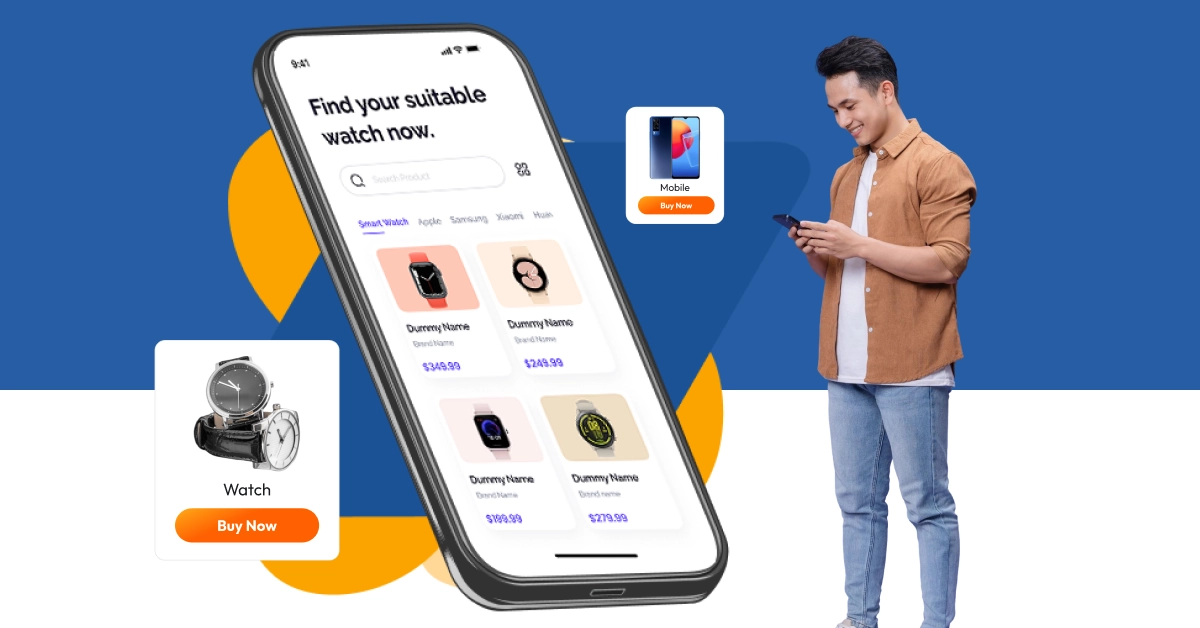In today’s fast-paced retail world, the FMCD (Fast-Moving Consumer Durables) sector has undergone a massive shift. What once felt rigid and disconnected is now transforming into something smoother, smarter, and far more connected. That shift from friction to flow is being powered by innovation, strategy, and most importantly, experience. In this blog, we’ll walk through some real-life FMCD success stories, unpack how brands are embracing omnichannel and digital transformation, and show you how Phygitalmax is helping them win on every front.
Why the FMCD Industry had to Change?
Consumer expectations have changed. Today’s buyer doesn’t just want to buy a product—they want a seamless journey. Whether they’re browsing online, visiting a store, or chatting with a bot at midnight, they expect continuity.
A survey by Kibo found that 67% of over 3,000 U.S. consumers had used BOPIS( Buy Online, Pick Up In Store) in the last six months, appreciating the free fulfillment and greater control compared to home delivery.
For the FMCD industry, this was a wake-up call. Traditional models just weren’t cutting it anymore. And so, the industry began its shift towards digitization, customer-first strategies, and hybrid retail models.
Real-World Wins: Consumer Durable Success Stories
1. Tata CLiQ: Building a Bridge Between Online and Offline
Tata CLiQ nailed the FMCD omnichannel experience. By combining their online store with smart in-store tech like virtual try-ons and personalized product suggestions, they created a system that works wherever the customer is.
Their phygital model increased foot traffic, boosted digital sales, and made customers feel seen—whether online or offline.
2. Shoppers Stop: Retail Reinvented
With RFID-based inventory management and a revamped e-commerce platform, Shoppers Stop gave itself a modern makeover. This not only cut down stockouts but also improved the in-store experience. Customers could now check product availability online, walk into a store, and get exactly what they were looking for.
It’s a textbook example of retail digitization FMCD done right.
3. BigBasket: When IoT Meets FMCD
While BigBasket started as a grocery app, its use of IoT (Internet of Things) has revolutionized how consumer durables are stocked, shipped, and delivered. They’ve integrated smart tech to track warehouse inventory in real-time, minimize delivery errors, and improve turnaround times.
This operational edge is part of what makes their direct-to-consumer FMCD model so efficient.
4. Samsung: Leveraging Live Streaming for Product Launches
Samsung used live streaming as a key part of their product launch strategy for new smartphones, tablets, and appliances. By engaging with a global audience, Samsung increased online sales and interaction through real-time Q&A sessions, live product demonstrations, and exclusive online promotions.
This approach resulted in increased engagement and higher conversion rates during product launches.
5. LG Electronics: Live Commerce Boosts Sales in Asia
LG Electronics turned to live commerce platforms in Asia, particularly in China, to showcase their home appliances like refrigerators and washing machines. They combined live demonstrations, influencer partnerships, and interactive chats to drive consumer interest and sales.
6. Xiaomi: Boosting Consumer Engagement with Live Product Demos
Xiaomi has leveraged live streaming and video commerce to launch consumer durables such as smart TVs, air purifiers, and smartphones. Through detailed product demonstrations and influencer-driven live events, they were able to create a buzz around their products, effectively engaging viewers and increasing conversions.
Xiaomi’s use of live commerce helped it capture a large portion of the tech market in India.
7. Sony: Showcasing New Appliances with Video Commerce
Sony utilized video commerce to market its home entertainment products, such as soundbars, home theaters, and TVs, through immersive video demonstrations. They partnered with leading influencers and tech experts to present product features in real-time, allowing viewers to interact and ask questions.
The campaign led to higher than expected engagement and increased interest in Sony’s products, directly impacting sales.
8. Philips: Video Commerce for Home Appliances
Philips has employed video commerce for promoting kitchen appliances, healthcare devices, and home entertainment systems. Through live cooking shows, fitness demos, and real-time reviews, they built a connection with their audience while providing the opportunity for viewers to make quick purchases.
9. Dyson: Driving Sales with Interactive Video Demos
Dyson used live video demos to showcase the capabilities of their products, including air purifiers, vacuum cleaners, and hair care tools. With experts answering live questions, Dyson provided in-depth insights into product features, creating an interactive experience for viewers.
Dyson’s sales and customer loyalty improved significantly, with customers appreciating the opportunity to engage in real-time.
How Personalization Drives the Phygital Experience FMCD?
Personalization isn’t just a buzzword anymore—it’s a business driver. A report from McKinsey found that 71% of consumers expect personalized interactions, and 76% get frustrated when they don’t get them.
FMCD brands like Samsung are using AI and machine learning to recommend products based on browsing history and behavior, creating a deeply personalized buying experience. These FMCD success stories show how tech-driven personalization is transforming the customer journey. And this personalization carries through to physical stores as well—salespeople armed with tablets and customer profiles, offering smarter service.
Why More Brands Are Going Direct-to-Consumer?
The direct-to-consumer FMCD model isn’t just a trend , it’s the future. Brands like Lenskart, boAt, and Mama’s earth have ditched traditional distribution and taken control of the customer relationship.
This shift allows them to:
- Control branding across touchpoints
- Offer faster, cheaper delivery
- Gather first-party data to personalize future experiences
According to Forvis Mazars, D2C brands that invest in omnichannel get up to 30% higher ROI compared to single-channel counterparts.
The Rise of Live Commerce FMCD
Live commerce has emerged as one of the biggest game-changers in the FMCD space. Think Instagram Live meets e-commerce: real-time product demos, influencer-led walkthroughs, instant shopping links. Brands are now selling washing machines and air purifiers via livestreams—and people are buying them, often within minutes.
So, Where Does Phygitalmax Fit In?
At Phygitalmax, we’ve been right in the middle of this retail revolution—helping FMCD brands smoothen their operations, amplify their customer experience, and digitize their retail presence.
Here’s what we bring to the table:
1. Connected Commerce Platforms
We enable seamless transitions between online and offline touchpoints, ensuring a consistent phygital experience FMCD customers love.
2. AI-Powered Product Discovery
Our systems provide features like live chat during the demo thus it makes the purchasing highly personalized based on suggestions in real-time.
3. Real-Time Analytics
We help brands track customer journeys and conversion trends so they can make smarter, faster business decisions.
4. Tool Integration
Phygitalmax also has c compatibility with many tools thus it makes it easy for the brands to drive their business. Whether you’re a legacy brand trying to go digital or a D2C startup ready to scale, Phygitalmax can help you move from friction to flow.
Final Thoughts: The Power of FMCD Success Stories
Each of these stories—from Tata CLiQ to BigBasket—is more than a case study. They’re FMCD success stories that signal a broader shift in the FMCD industry where digital transformation, omnichannel experiences, and personalization are no longer optional—they’re essential.
And as you move forward in this new retail reality, Phygitalmax is here to ensure you’re not just keeping up—but leading the way.








